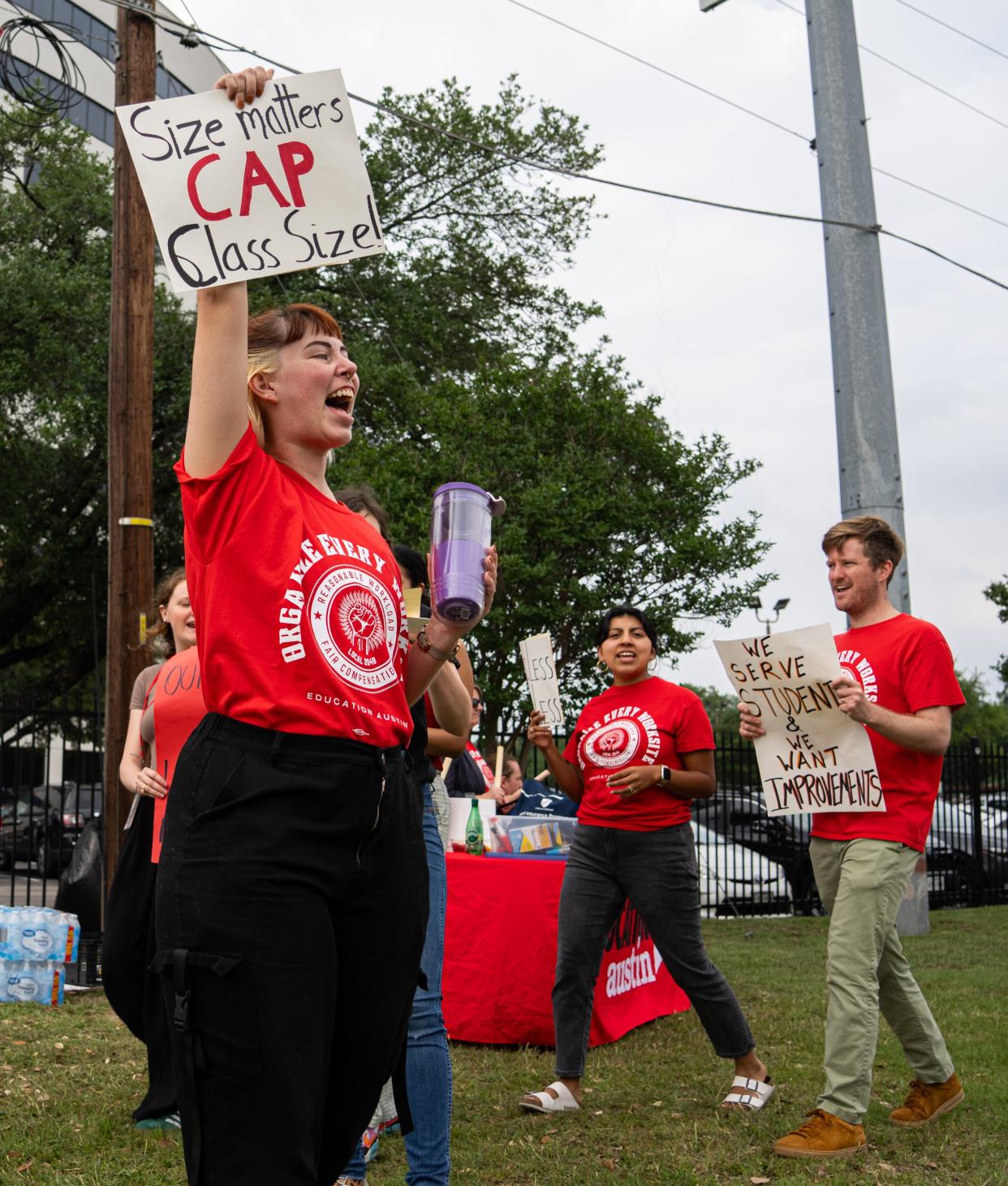Pay raises for teachers? Austin school board weighs tax increase amid budget shortfalls
Staring down a $30 million budget deficit for the 2024-25 school year, Austin school board members are considering asking district voters to authorize a higher property tax rate to give employees pay raises and to hire additional on-campus workers.
School districts statewide are grappling with budget deficits, with many officials placing blame on state lawmakers for failing to beef up public education funding to meet rising inflationary costs. Lawmakers last year, with Gov. Greg Abbott pulling the strings, tied increases to education spending with approving school voucher legislation, a program that would use public money to pay for private school tuition. A coalition of Texas House Democrats and some rural Republicans killed "school choice" proposals over worries that such measures would bleed public schools of much-needed funding.
Under the current consideration, the Austin district, which has a tax rate of 85.95 cents per $100 of property valuation, is proposing to ask voters to authorize a tax rate of 92.87 cents per $100 of property valuation. Alternatively, the district is also weighing whether to lower the tax rate to 83.77 cents.
For the average homeowner — with a home valued at $563,069 — the higher rate would mean an annual tax bill of $4,300. The lower rate would cost the average homeowner $3,879 annually.
If voters approve the higher tax rate, the school district could collect an additional $44 million for its $956 million budget, district officials said.
The higher proposed tax rate would need residents' approval because it’s above what the district has the authority to set without seeking voters' OK.
Budget woes
The district is considering this vote because officials want to explore every option for generating revenue before cutting classroom services for students, Superintendent Matias Segura said during a school board meeting Thursday.
“I have a hard time cutting really, really deep until I know our community won't support this,” Segura said. “If that comes and goes, then we know. But to do that before that opportunity — it's just not what I think our community would want us to do.”
The district is already planning $30.4 million in cuts to next year’s budget, including eliminating unfilled positions in the administrative office, reducing contracted services and narrowing its overtime expenses. Even with those cuts, the district staff still predicts a $30 million deficit.
If voters approve a higher tax rate — a proposal that could be included on the November ballot — the district could use the additional revenue to give teachers and librarians a 3% raise, hire registrars for elementary and middle schools, hire instruction coaches for all campuses and give other employees a 1% raise, among other compensation increases, according to the district.
Staff demands raises
Ahead of Thursday’s board meeting, members of Education Austin, which represents district employees, gathered in front of the district headquarters in a rally to demand that board members consider higher pay in the budget.
Members held signs saying, “Our kids matter” and “Make it right,” while marching beside the administrative building.
The district invested $64 million last year for staff raises but must not fall behind, said Bree Rolfe, who works with student support services to provide assistance to children experiencing homelessness.
“For far too long, the teachers and workers of AISD have not been paid a livable wage to live in Austin, Texas,” Rolfe said. “It’s been wrong for too long.”
Last year’s pay raise was a great start, but district pay is still out of line with average salaries for the area, said Ken Zarifis, president of Education Austin.
“That was a historic pay raise, but if you go to zero the next year, over two years, it’s a pretty normal pay raise,” Zarifis said.
'Keep the lights on'
If voters approve the higher property tax rate, the $44 million in additional revenue would be only about 25% of what the higher tax generated, according to the district.
The Austin district this year sent the state $659.9 million — more than 41% of its general fund — in recapture payments. The recapture program takes property tax money from property-wealthy districts and redistributes it to those with lower property wealth.
That’s a tough pill to swallow, said board Vice President Kevin Foster.
“We're talking about taking a taxpayer's dollar and throwing 75 cents of it into the ether so we can get a quarter,” Foster said.
However, the district is facing significant financial challenges, District 1 Trustee Candace Hunter said.
“How do we keep the lights on and keep the doors open?” Hunter asked. “How do we do that? It's a new funding source or deeper cuts.”
A tax rate election could be a way to avoid more painful cuts, Hunter said.
“We will for sure be damned if we don't,” Hunter said.

This article originally appeared on Austin American-Statesman: AISD board weighs tax increase to give pay raises, hire more workers
